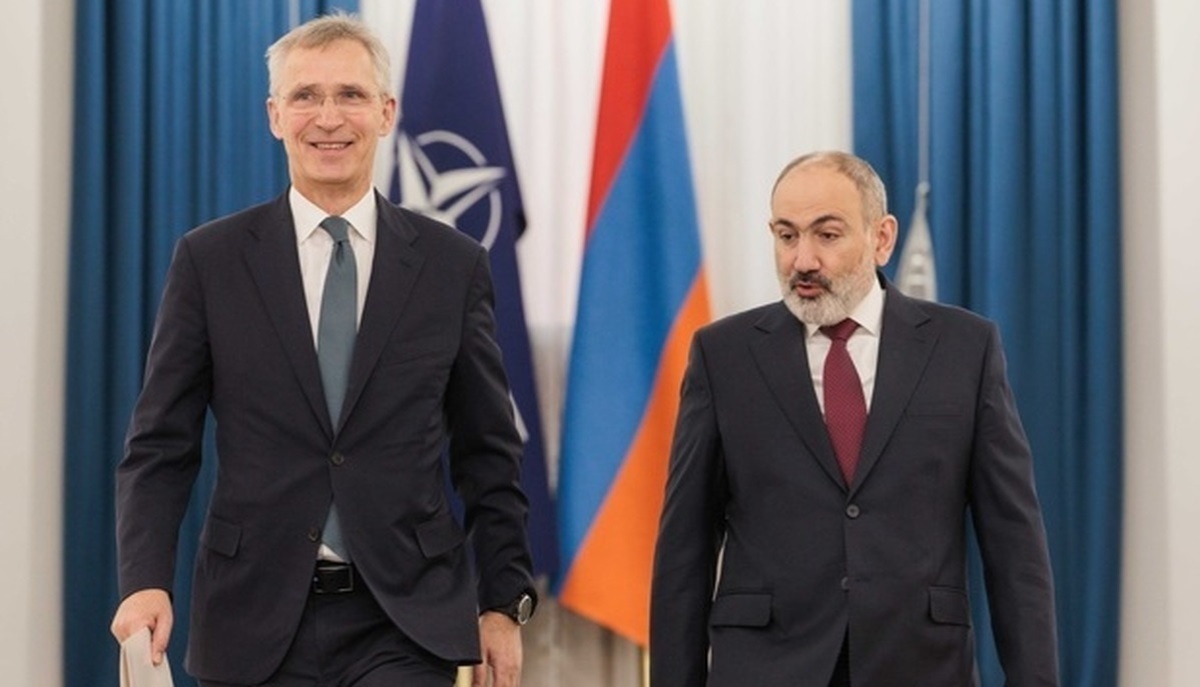Shuaib Bahman, in a conversation with the Strategic Foreign Relations website regarding the recent Brussels meeting attended by Armenia, the European Union, and the United States, which faced severe criticism from Russia and considered it as a Western attempt to separate regional countries from Russia, stated: “The divergence trend of Armenia from Russia began after the Second Karabakh War in 2020, as Russia reconsidered its traditional policy towards Armenia and allowed the war and Azerbaijan’s advance. During this period, Russian forces were considered peacekeepers in the region, but from Armenia’s perspective, they did not take effective action to protect Armenia’s interests and Armenians. The Armenian government believed that Russia, as a partner of this country in the Collective Security Treaty Organization, is obligated to protect this country. When this protection is not provided, it cannot rely on Russia anymore.”
He pointed out that Yerevan has several reasons to pursue divergence from Russia, stating: “Naturally, these conditions are met with eagerness from Western parties, who are quick to seize the opportunity to replace Russia in the Caucasus region. As a result, the Armenian government has been presented with various proposals in the economic and military sectors, which could potentially extend to other areas in the future.”
The Caucasus affairs expert added: “In the long term, the Pashinyan government seeks membership in the European Union and NATO. This approach exists in Armenia, and on the other hand, Russia’s policies in the past four years have accelerated this approach. Meanwhile, Western parties are also trying to use this issue and opportunity to gain a foothold in the region.”
He said: “There is not much difference in the overarching approaches of the Republics of Armenia and Azerbaijan; Just as Armenia seeks divergence from Russia, the Republic of Azerbaijan also pursues this policy, albeit more cautiously than Armenia, to benefit from the relative privileges and interests of partnership with Russia. However, the Republic of Azerbaijan also follows a Western-oriented policy and fundamentally seeks membership in the European Union and NATO. In the meantime, tensions between the Republic of Azerbaijan and some Western countries over the lack of democracy and human rights violations in Azerbaijan have been raised. Still, it seems that the Anglo-Saxon faction in the West, which has close relations with Baku, ultimately overlooks the existence of such issues in the Republic of Azerbaijan.”
Bahman stated: “The main goal of the regional developments from the 2020 war until today is to change the traditional order in the Caucasus and create a new order in the region. The traditional order in the Caucasus, or the post-Soviet order, is recognized with Russia’s hegemony. However, since the Ukraine war, based on the goals of this war pursued in the past four years, we are witnessing a serious transition in the region. All three countries, Armenia, Azerbaijan, and Georgia, aspire to join the Euro-Atlantic structure, and, naturally, Russia is not satisfied with these conditions because Western countries fully support the change in the traditional order of the region.”
This Caucasus affairs expert stated that the region’s inclination towards the West could turn the Caucasus into a new geopolitical arena for conflicts between Russia and the West. He said: “The conflict between Russia and the West in Ukraine could be repeated in the Caucasus. Suppose the divergence of regional countries, especially Armenia and Azerbaijan, from Russia happens rapidly. In that case, the Russians may react seriously to this divergence and even prevent a change in the traditional order of the region by using hard power.”
Regarding Iran’s perspective on the developments in the Caucasus and the closeness of these countries to the Western front, he noted: “However, Iran’s role and interests in the region must be considered because Iran does not have a desire to establish a new order, especially if it is Western or NATO-centric. Iran seeks to establish a new order in the form of a regional order, in which Armenia, Azerbaijan, Georgia, and regional players, including Turkey, Russia, and Iran, play a role. However, accessing and shaping this regional order is challenging because the region is moving towards a Western-centric order focusing on NATO. But if Iran’s interests are jeopardized in this process, we will witness more serious reactions from Tehran towards the changes and developments in the region.”
Bahman stated that the geopolitical competition between regional and extra-regional powers in the Caucasus would remain heated in the future and could take on even newer forms.










0 Comments